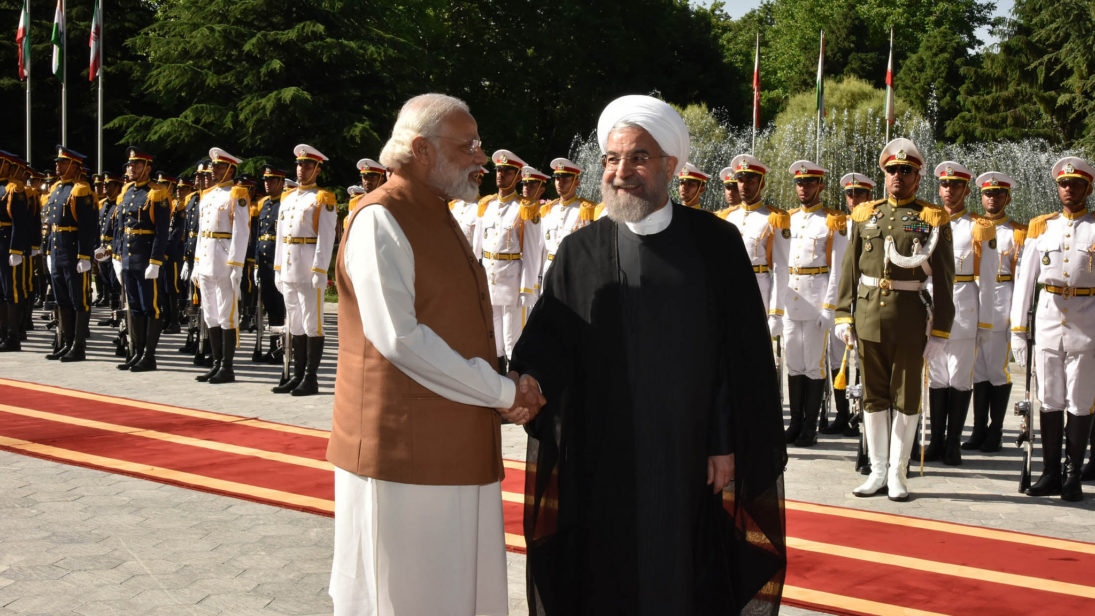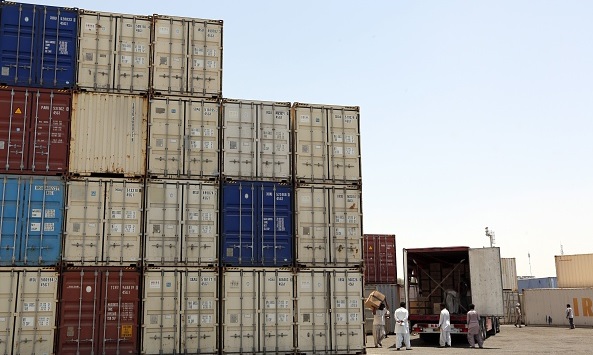
On May 9, President Trump withdrew from the landmark P5+1 nuclear deal with Iran, known as the Joint Comprehensive Plan of Action (JCPOA). This deal had given Iran relief from American and multilateral sanctions and as a result, it had begun to integrate itself into the world economy by establishing economic partnerships with the United States and a number of countries in Europe and Asia, not least India.
The India-Iran economic partnership, somewhat constrained during the sanctions era, changed after the JCPOA. India and Iran resumed their trade partnership, signing off on major deals such as the Farzad B gas fields and the operationalization of the Chabahar port, and fully resumed their oil trade. Some have argued that this warming of ties will be put into peril once the United States reinstates sanctions against Iran. However, given the practical dynamics of the India-Iran economic relationship and their interdependence on bilateral trade, both countries are likely to find a way to continue engagement despite U.S. sanctions.
Some scholars have argued that U.S. withdrawal from the Iran deal has potentially serious consequences for India. With Iran’s banking sector as well as oil companies likely to be the most affected by U.S. sanctions, it will limit Iranian’s ability to export oil and even drive up oil prices. These factors could impact India’s oil trade with Iran, which continues to be the third-largest supplier of crude oil to India, making up three-quarters of its oil supply. Understandably, India cannot afford a further disruption of its oil supply given that it is already heavily dependent on imports, being the world’s fourth-largest oil importer in 2017.
Others have raised concerns that the JCPOA withdrawal might affect Indian investment in the Chabahar port, located in southeast Iran and strategically important in connecting Afghanistan, Iran, and India. Even before the United States finalized the Iran nuclear deal, New Delhi signed a Memorandum of Understanding (MoU) with Tehran for the development of the Chabahar port in 2015. Ever since then, the Chabahar port project has been moving along relatively quickly, with the first shipment of wheat sent to Afghanistan this past October.

There has also been a debate over how the development of the International North South Transport Corridor (INSTC) might be affected. INSTC, like the Chabahar port, is strategically important because it connects India, Iran, and Russia, potentially reducing trade costs by 30 percent and distances by 40 percent compared to existing routes, which involve using the Rotterdam Port in the Netherlands. Although INSTC countries such as Afghanistan, Armenia, Azerbaijan, and Russia have not yet commented on the JCPOA withdrawal, if they decide to adhere to U.S. restrictions on trade with Iran, the project would slow down, if continued at all.
However, most of these speculations have been laid to rest by Indian External Affairs Minister Sushma Swaraj’s response to the U.S. withdrawal from the JCPOA. She asserted that India would abide only by the multilateral United Nations sanctions on Iran, but not by those imposed by any other country. India has already gone ahead with this position in Chabahar, where the first phase of the port, i.e. building the Shahid Beheshti dock, is expected to resume by June 17. Additionally, India’s crude oil import from Iran is expected to continue. One way India might deal with financial transactions required for its oil imports while respecting potential U.N. sanctions is through UCO Bank and by using rupees and euros instead of dollars. The UCO Bank figures into India’s plans for oil trade because the United States has no financial dealings with the bank and thus cannot sanction it. Iran is willing to accept payments from India in rupees for the time being, which it will use to most likely import Indian goods including rice, tea, pharmaceuticals, auto parts, farm machinery, and project exports that go into building ports and railways. Though it remains to be seen what happens on the INSTC, it appears that for the most part India may not be hit hard by the reinstatement of U.S. sanctions against Iran.
Does India’s intention of continuing an economic relationship with Iran despite the current situation affect the growing U.S.-India partnership? The answer is no. Even though India and the United States are not on the same page on the JCPOA issue, it is unlikely that both sides would let this affect their relations. Additionally, it must be recognized that this is not the first time India is bypassing U.S. sanctions on Iran–despite U.S. pressure in 2013, New Delhi continued its oil trade with Iran by devising ways to bypass Western sanctions. It is also plausible that some back-channel discussion, aimed at managing the repercussions of the U.S withdrawal from the JCPOA, could be undertaken between the United States and India. In fact, recent reports suggest that India may ask the United States for a pass to buy limited Iranian oil.
Thus, despite facing potential obstacles in continuing with regional infrastructure projects such as the INSTC, the Indian-Iranian economic partnership is likely to continue as usual despite U.S. withdrawal from the JCPOA, just as it did in the past.
***
Image 1: MEAphotogallery via Flickr
Image 2: Atta Kenare/AFP via Getty Images


